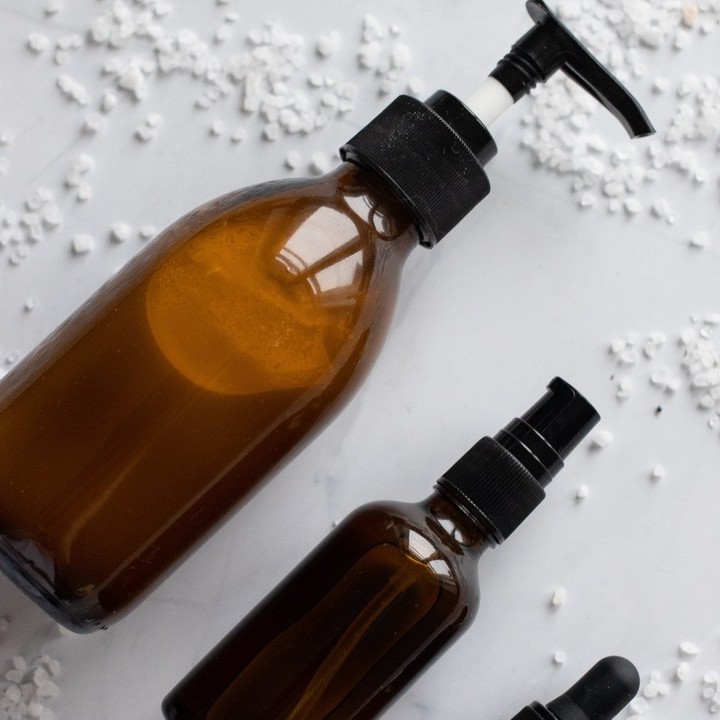
Blemishes: Causes, Types, and Effective Treatment Options
Blemishes: Causes, Types, and Effective Treatment Options
Blemishes, often considered a cosmetic concern, can have a significant impact on one's confidence and self-esteem. Whether it's a pesky pimple, a stubborn dark spot, or an acne scar, blemishes come in various forms and can be caused by a multitude of factors. In this article, we will delve into the causes, types, and effective treatment options for blemishes.
I. Types of Blemishes
- Acne: Acne is a common skin condition characterized by the development of pimples, blackheads, and whiteheads. It often results from the overproduction of sebum, clogging hair follicles and causing inflammation.
- Hyperpigmentation: Hyperpigmentation refers to the darkening of the skin due to an excess production of melanin. This can occur as a result of acne, sun exposure, or injury, leaving behind stubborn dark spots.
- Rosacea: Rosacea is a chronic skin condition that causes redness and visible blood vessels on the face. It may also lead to the formation of small, red, pus-filled bumps, resembling acne.
- Eczema and Psoriasis: Chronic skin conditions like eczema and psoriasis can cause red, itchy, and scaly blemishes. These conditions often require specialized treatment to manage symptoms effectively.
- Scars: Blemishes resulting from injuries or severe acne can leave behind scars. These may be atrophic (indented) or hypertrophic (raised) and can affect skin texture.
II. Causes of Blemishes
- Hormonal Fluctuations: Hormonal changes, particularly during puberty, menstruation, pregnancy, and menopause, can lead to an increase in sebum production. Excess sebum can clog pores, creating an environment conducive to the development of blemishes such as acne.
- Genetics: Genetic factors play a crucial role in skin health. Individuals with a family history of blemishes may be more prone to developing similar skin issues.Top of Form
- Diet and Lifestyle: A diet high in processed foods, dairy, and sugar may contribute to skin issues. Additionally, factors like stress, lack of sleep, and smoking can negatively impact skin health, making it more susceptible to blemishes.
- Environmental Factors: Exposure to pollution, UV rays, and harsh weather conditions can damage the skin barrier, leading to blemishes. Proper protection and skincare routines are essential in mitigating these effects.
What Poor Skincare Habits Cause Blemishes?
Poor Skincare Habits: Inadequate skincare practices, such as infrequent cleansing or using harsh products, can contribute to the formation of blemishes. Failure to remove makeup and environmental pollutants can also exacerbate the problem.
Poor skincare habits can significantly contribute to the development and exacerbation of blemishes. Neglecting the health of your skin can create an environment that is conducive to various skin issues, including acne, hyperpigmentation, and other blemishes. Here are some ways in which poor skincare habits can impact blemishes:
**1. Clogged Pores: Inadequate cleansing can lead to the accumulation of dirt, oil, and dead skin cells on the skin's surface. This buildup can clog pores, creating a breeding ground for bacteria. When pores are clogged, it increases the likelihood of developing acne and other blemishes.
**2. Bacterial Growth: Failing to cleanse the skin regularly allows bacteria to thrive on the skin's surface. Bacteria, particularly Propionibacterium acnes (P. acnes), can contribute to the inflammation of hair follicles and the development of inflammatory blemishes like pimples and cysts.
**3. Inflammation: Aggressive scrubbing or using harsh products in an attempt to cleanse the skin can lead to irritation and inflammation. Inflamed skin is more prone to blemishes, and existing blemishes may become more red and noticeable.
**4. Makeup Residue: Going to bed without removing makeup allows cosmetic residues to mix with natural skin oils and environmental pollutants. This mixture can block pores and lead to the formation of blemishes. Thorough makeup removal is crucial for maintaining clear and healthy skin.
**5. Lack of Moisturization: Some individuals with oily or acne-prone skin may avoid moisturizing, thinking it will worsen their blemishes. However, inadequate moisturization can lead to dryness and flakiness, prompting the skin to produce more oil to compensate. This can result in an imbalance and potentially lead to more blemishes.
**6. Overuse of Harsh Products: Using harsh or abrasive skincare products, especially without the guidance of a dermatologist, can strip the skin of its natural oils and disrupt its protective barrier. A compromised barrier is more susceptible to environmental damage and can contribute to blemish formation. You can choose Cerave Blemish Control Cleanser 236ml
**7. Ignoring Sun Protection: Failing to use sunscreen regularly can lead to sun damage, which can worsen hyperpigmentation and cause premature aging. Additionally, exposure to UV rays can trigger inflammation and exacerbate existing blemishes. You can choose Cerave Renewing SA Cleanser| 237 ml
**8. Neglecting Exfoliation: Proper exfoliation is essential for removing dead skin cells and promoting cell turnover. Neglecting this step can result in a dull complexion and clogged pores, contributing to the development of blemishes.
**9. Sharing Personal Items: Sharing towels, makeup brushes, or other personal items can transfer bacteria from one person to another, increasing the risk of blemish formation. It's important to use personal items exclusively and maintain good hygiene practices.
**10. Ignoring Skin Conditions: Ignoring pre-existing skin conditions, such as eczema or psoriasis, without appropriate care can worsen inflammation and lead to the development of blemishes.
III. Treatment Options for Blemishes
Topical Treatments:
- Retinoids: Derived from vitamin A, retinoids are known for their effectiveness in promoting skin cell turnover, preventing clogged pores, and reducing the appearance of blemishes.
- Topical Antibiotics: For inflammatory blemishes, antibiotics can help reduce bacteria on the skin's surface, minimizing the risk of infection.
- Chemical Peels: Chemical peels involve the application of a chemical solution to the skin, causing it to exfoliate and peel off. This process can help improve skin texture, reduce hyperpigmentation, and diminish the appearance of blemishes.
- Laser Therapy: Laser treatments use focused beams of light to target specific skin concerns. They can be effective in treating various blemishes, including scars, hyperpigmentation, and vascular issues associated with conditions like rosacea.
- Microdermabrasion: This non-invasive procedure involves the use of a machine to exfoliate the outer layer of the skin, promoting the growth of new, smoother skin. It can be beneficial in reducing the appearance of blemishes and improving overall skin texture.
Oral Medications:
- Antibiotics: Oral antibiotics may be prescribed for severe cases of acne to reduce inflammation and bacteria.
- Hormonal Therapy: For hormonal imbalances contributing to blemishes, hormonal therapy may be recommended to regulate sebum production.
- Skincare Regimen: Establishing a consistent and suitable skincare routine is crucial for preventing and managing blemishes. This includes gentle cleansing, moisturizing, and the use of products containing ingredients like salicylic acid or alpha hydroxy acids.
Blemishes are a common and often frustrating aspect of skincare. Understanding the causes and types of blemishes is key to developing an effective treatment plan. Whether through topical treatments, dermatological procedures, or lifestyle changes, there are numerous options available to address blemishes and promote healthier, clearer skin. By taking a holistic approach to skincare and seeking professional guidance when needed, individuals can regain confidence and achieve a complexion they feel proud of.
 العربية
العربية





